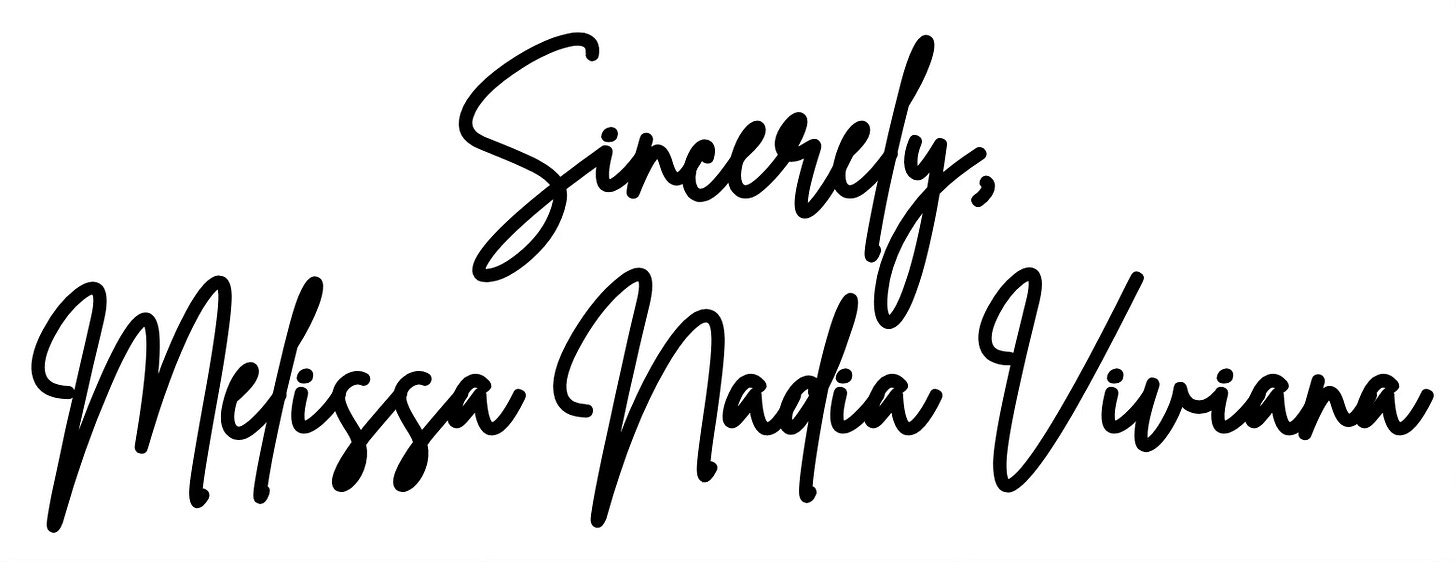Does The Internet Id Exist Outside Of Public Spaces?
Was The Internet Meant To Be An Extension Of Our Private Minds? Or A Public Forum?
Nobody’s Right When Everybody’s Wrong is a reader-supported publication by Melissa Nadia Viviana; Author, Women’s Rights Activist, & Philosopher.
To receive new essays about who we are as a society after 20 years of social media, consider becoming a free or paid subscriber.
The other day, I told someone that I moderate my Bluesky posts. He retorted that Bluesky was a public forum and I shouldn’t be allowed to silence him.
He was promptly blocked, but before he was blocked, I told him that Bluesky wasn’t like X at all, because the premise of Bluesky is actually built on moderation.
That’s why we have mass block lists
That’s why we can detach our comments from other people’s quotes
That’s why we can create new feeds to follow
That’s why we can mute keywords so they don’t show up on our timeline
That’s why we can either hide a person’s comment from our thread
Or block them and detach their comments permanently from our feed
On Twitter, you couldn’t control any of that. And certainly not the comments made on your tweets. This made us powerless to moderate and control our own spaces.
But the consequence of this, is that it led to a free-for-all; a place of pure lawlessness.
And it encouraged (if not invented) mass trolling, spam, and bad agents from foreign countries who pretended to be ordinary people in order to sow chaos and ill will.
And there was virtually nothing we could do to stop it. I wrote about this here.
But the purpose of bringing this up now is that his comment that Bluesky was a “public space” really got me thinking…
What does that even mean? Is the internet actually public?
I thought of this idea as I was standing in a public cemetery, next to some busy city streets with restaurants and tours.
I realized that, on the streets, people are polite. Nobody is yelling or cursing at anyone. There’s no harassment. No propaganda. No lying. No insulting. No disinformation.
In the United States, particularly, it’s very rude to be rude to strangers. Largely, we only speak to strangers out of the impetus for polite and friendly conversations.
Only rarely will a stranger be confrontational. But more frequently when we don’t like the behaviors of people in public, we simply mutter “asshole” under our breath and move on.
So looking around at the way we actually behave in public, I see nothing in common with Twitter.
Furthermore, we’ve always considered events that are held in public spaces to have boundaries and parameters.
And we’ve been doing this for hundreds of years. When you go to an event; a party; a conference, you ask things like, What am I supposed to wear? What am I supposed to bring? What’s the schedule like?
If the rules are that I can’t go inside with a water bottle or bring outside food, then that’s what I have to do. Restaurants, museums, sports, concerts.
They all have rules.
And we understand that, because there have always been boundaries and parameters that set a status quo for how to behave in public.
Even on “public property” like a park, or the street, or a town square… there are still laws that dictate permissible behavior.
If you were walking down the street yelling as loudly as possible or blasting music - there are noise ordinances. A policeman can come over and say that you’re disturbing the peace.
If you fight with another person, they can have you arrested for assault. If there’s cause, someone can even get a restraining order to prevent you from approaching or contacting them.
People say, “Twitter is public. Twitter is public. Twitter is public.”
As if that’s some excuse for people to do whatever they want.
In what world do we do whatever we want in public spaces?
Certainly not in the real world.
In fact, the more I think about it, the more I think: Twitter can’t be a public space.
Because the last thing we do is behave lawlessly in public spaces….
(Continue reading on my new website!)
All Rights Reserved © 2025 Elephant Grass Press, LLC








One difference is that to be rude to someone in public is to risk a physical response: spat upon, slapped, punched. Not so on the internet. There is a real-life exception: when you are driving, you might curse someone out, and that is because there are no consequences for so doing.
Expanding on this (I'm thinking on the fly), a heckler at a stand-up comedy club does so because (s)he can do so with minimal risk. You would not speak to your boss the way you might razz a friend because of a possible reprisal.
Wonderful unpacking. Very insightful. Thank you.